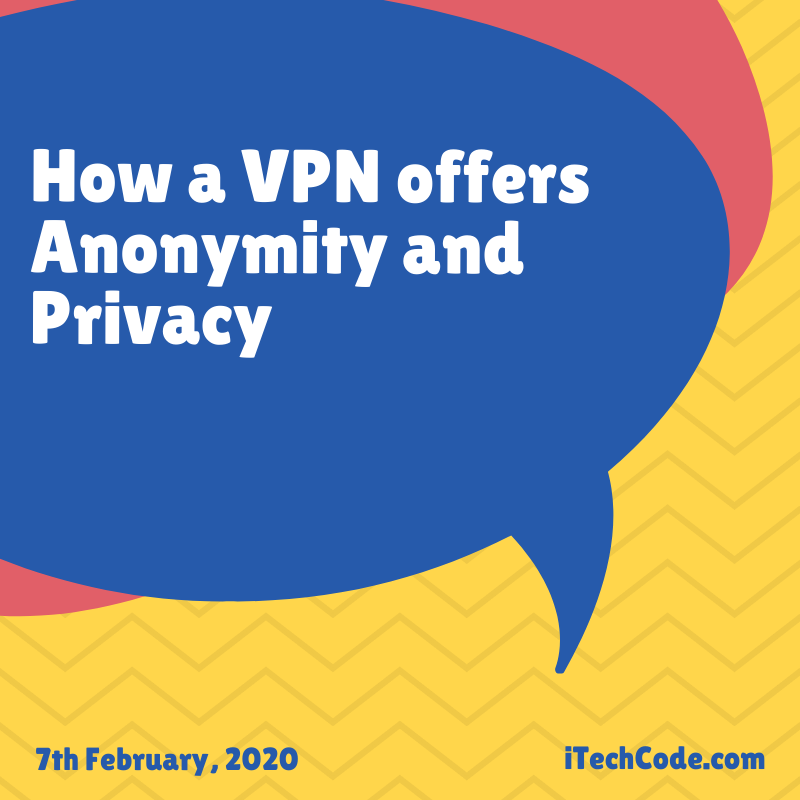VPNs, Virtual Private Network, has started to become the center of attention for a vast number of people working on the internet. It offers us three crucial things: freedom, privacy, and security.
The most significant initiation of unraveling our invisibility over the internet is one’s IP address, but a competent VPN can eliminate this problem to a great extent.
If you are not yet familiar with what a VPN is, gear up! This article will make sure to explain it well to you.
Online Security through a VPN
All the internet traffic is heavily encrypted through a VPN and then transferred to the VPN’s server. Also, the encrypted stream is conducted through a shielded ‘VPN-tunnel’ making it almost impossible for hackers and the government to detain and inspect your data.
It is highly suggested to use a VPN while being connected to a public WiFi network. Also having this additional layer of security at home and work won’t harm. It is always good to be a little more secure.
Anonymity and privacy through a VPN
Since your IP address is masked by the server’s IP, one is almost anonymous when browsing the internet, as soon as you connect to a VPN your IP is overlapped with your VPN server’s IP connecting a vast number of users. Our internet service provider, the government, the websites we visit and other trackers can link our online activities to our identity and location based on our IP address, allowing them all to see what we do over the internet. By using a VPN, our online activity can only be trailed to the VPNs server and not to us.
A VPN has encryption technologies namely IP security (IPSec), Secure Sockets Layer (SSL), Layer 2 Tunneling Protocol (L2TP) and Transport Layer Security (TLS), that creates an encrypted virtual tunnel, connecting your device and the VPN Server, is formed. While the traffic is passing through the tunnel, no one is able to trace you.
VPNs are also very popular among Bittorrent and various other Peer-to-Peer (P2P) users since file sharing is widely frowned upon. People prefer VPNs to watch Hulu, Netflix and other streaming video services at places where these services are not available legally. Nowadays, these services have taken an initiative to prevent VPN from broadcasting its traffic.
Freedom through a VPN
We can access the internet more freely through a VPN since it allows us to access sites and servers of remote locations. One can easily access social media sites, apps, links and streaming services that are banned at one’s current location. If you have migrated to another place, a VPN can get you connected to a remote server of your home town to access sites or watch your favorite shows.
Working of a VPN
An authentic and reliable VPN service should be downloaded and installed. Next, set up a secure connection with your required VPN server and establish the connection. As soon as the connection establishes,
- The data is encrypted by the VPN software and sent to the VPN server by a protected tunnel.
- The encrypted stream is then decrypted by the server.
- The VPN server will take the decrypted data to the internet and will also receive the reply that is sent back.
- Then that traffic is encrypted by the service and returned to the user.
The VPN runs in the background without interrupting your regular work routine and is unnoticeable.
The VPN service helps to provide anonymity by disguising your IP, security by encrypting your traffic and also provides freedom by changing your geographical location virtually.
Setting up a VPN Connection
It’s really simple to set up your VPN connection. Invest your time into finding a reliable VPN service since you will be willingly offering your data and information to them. So, finding a competent VPN provider is necessary. Once done, install their application on your device. Create a connection of your device with the VPN server altering the connection settings of your device as required. Ta Daa! In a matter of a few seconds, you are browsing the internet free and secure.
Benefits of using a VPN
- It provides excellent security from hackers and government tracking.
- It provides heightened security while using public internet networks.
- It helps to bypass censorship and geographical restrictions.
- One can anonymously download and upload.
- It helps to secure your browsing data from certain social media sites that are always searching for information to provide tailored ads.
- It is also helpful for people who want to work from home. It allows people to access a remote company’s network in the comfort of their home.

You can also stay updated by subscribing to iTechCode.